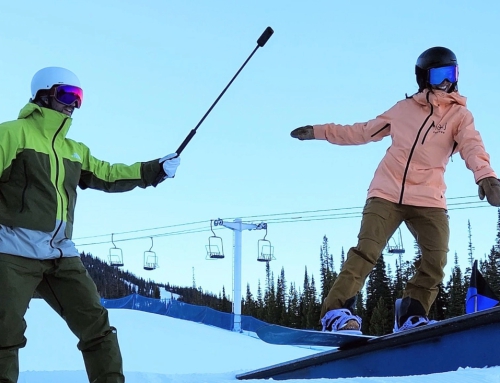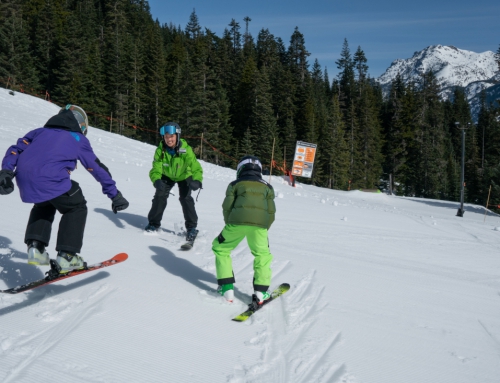32 Degrees: Meet Ryan Carr
This excerpted “Meet” Q&A, written by PSIA-AASI National Team alumna Robin Barnes, appears in the Fall 2024 issue of 32 Degrees. You can read the entire article here.
***
Dr. Ryan Carr, EdD, is a performance coach specializing in mental performance, leadership development, team cohesion, and strength and conditioning. He earned his doctorate degree in sport and performance psychology, with a concentration in positive leadership and administration from the University of Western States. He started Carr Driven Performance to offer mental performance coaching to youth, collegiate, and professional athletes. In addition, he works for IMG Academy as a mental performance coach and is the head of sport performance at Barton Health. Last season, he became a snowboard instructor at California’s Heavenly Mountain Resort.
WHAT GOT YOU INTERESTED IN THE MENTAL SIDE OF SPORT PERFORMANCE?
My dad owned a boxing gym in Philadelphia and my mom was a physical therapist and currently has her own Pilates studio, so I was always obsessed with athletes and how they train. At a young age I watched a lot of multisport athletes, as well as boxing, endurance sports, and soccer, and it had a big impact on me that my parents trained them. But the real catalyst was when I was invited to the Major League Soccer Combine in 2006 after a four-year career as a college soccer player, and I failed on an epic level. I got to the combine, and I had no idea how to manage the stress and nerves around performing at such a high level. After that experience I wanted to help other people so that they had the tools and mental skills to overcome any situation.
YOGI BERRA IS QUOTED AS SAYING, “BASEBALL IS 90% MENTAL. THE OTHER HALF IS PHYSICAL.” WHAT DO YOU THINK HE MEANT? HOW IMPORTANT IS THE MENTAL GAME IN SPORT OR ANY OTHER ASPECT OF LIFE WHERE PERFORMANCE MATTERS?
Everybody trains in their specific sport and the technical and tactical aspects surrounding it. Most people train their physical body to prepare; however, usually the missing link is training their mind. I think Yogi had it right because since getting into the mental performance space, I see a quicker and longer-lasting impact with mental skills training and developing self-awareness more than any strength and conditioning tactic. Of course, athletes must have the foundation to be technically and tactically proficient at their sport, but if they lack confidence, most of that goes out the window and they can’t perform.
SNOWSPORTS INSTRUCTORS PERFORM WHEN WE’RE DEMONSTRATING FOR OUR STUDENTS, WHEN WE’RE IN TRAINING SITUATIONS WITH OUR PEERS AND COACH, WHEN WE’RE APPLYING LEARNED SKILLS AND TRYING TO MASTER THEM, AND, OF COURSE, WE PERFORM WHEN WE’RE IN EXAMS AND COMPETITIONS. DIFFERENT PEOPLE FEEL DIFFERING AMOUNTS OF STRESS AND PERFORMANCE ANXIETY IN THE AFOREMENTIONED SITUATIONS. ARE SOME PEOPLE NATURALLY BETTER AT DEALING WITH PERFORMANCE ANXIETY?
I love this question. Every human has different levels of trait anxiety, which is a combination of what our parents gave us genetically but also our upbringing and how we were parented, as well as the situations and environments we found ourselves in as children through adulthood. State anxiety is when we step into a situation such as a testing platform, some terrain that we may not be comfortable with, or performing a new skill. Trait anxiety definitely influences state anxiety, but there are various things we can do to help manage our state anxiety. First, people must be competent in their skills and have a general sense of self-efficacy, which means they believe that they can perform what they’re about to do. If they don’t, then they need to practice those skills more. Once people are competent at their skills, then various forms of awareness are important. If people are not aware of their emotions, they simply won’t be able to change their current state. Once they have the awareness, they can use a mental skill such as breathwork or self-talk, or a performance routine to help get them to the state they want to be at.







